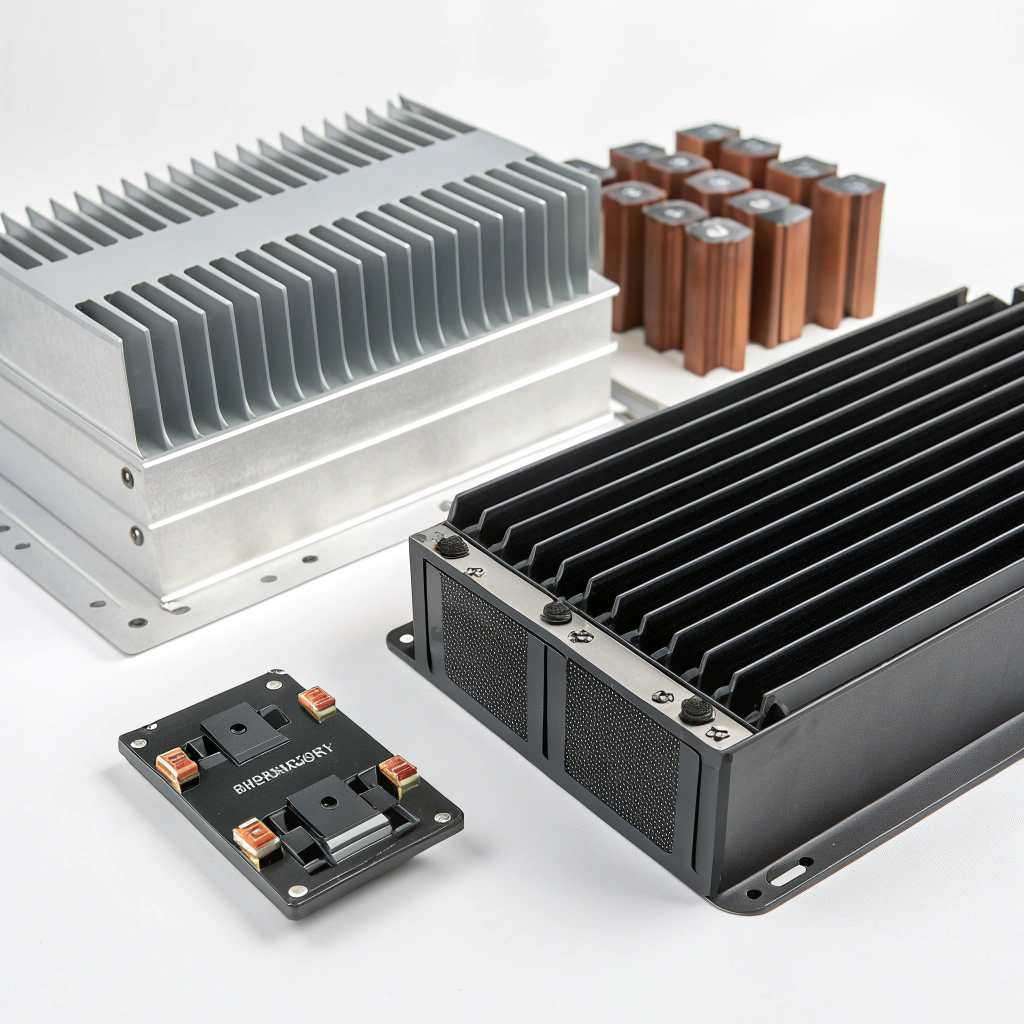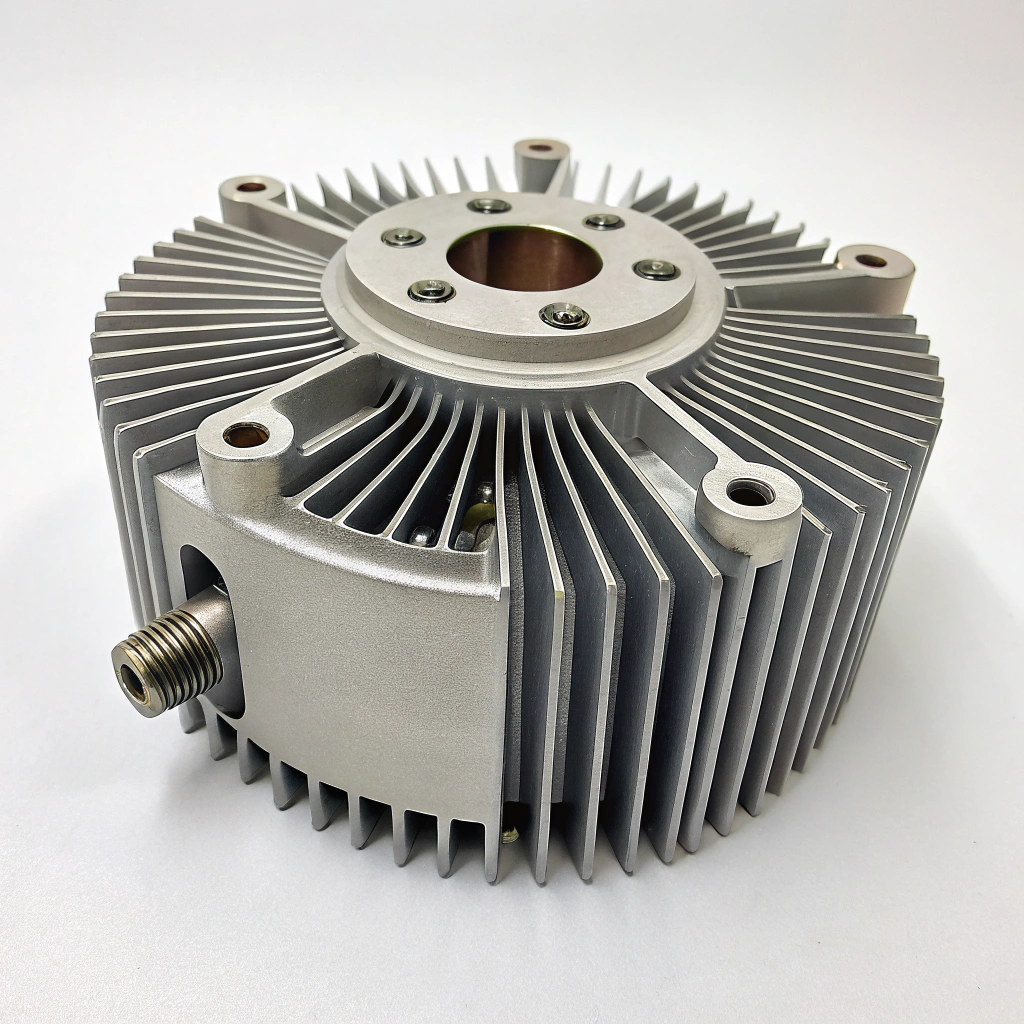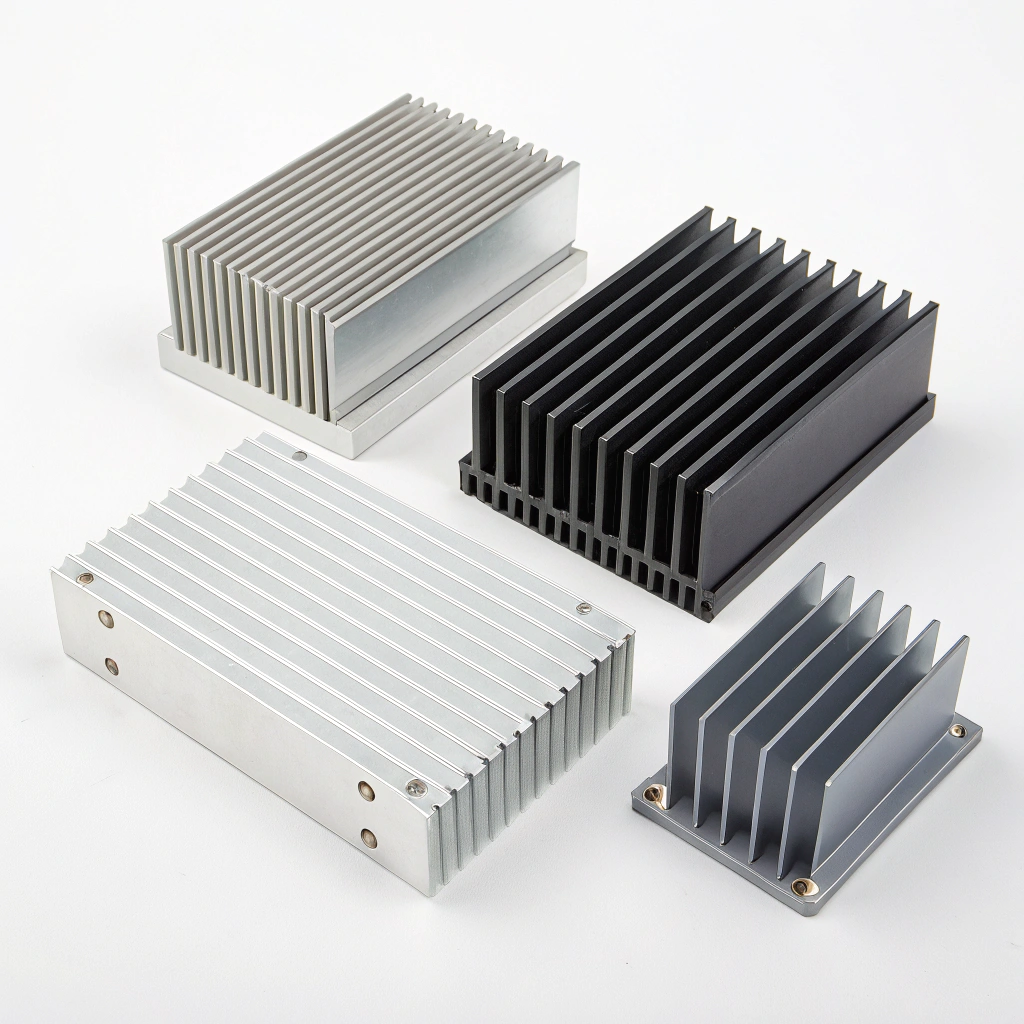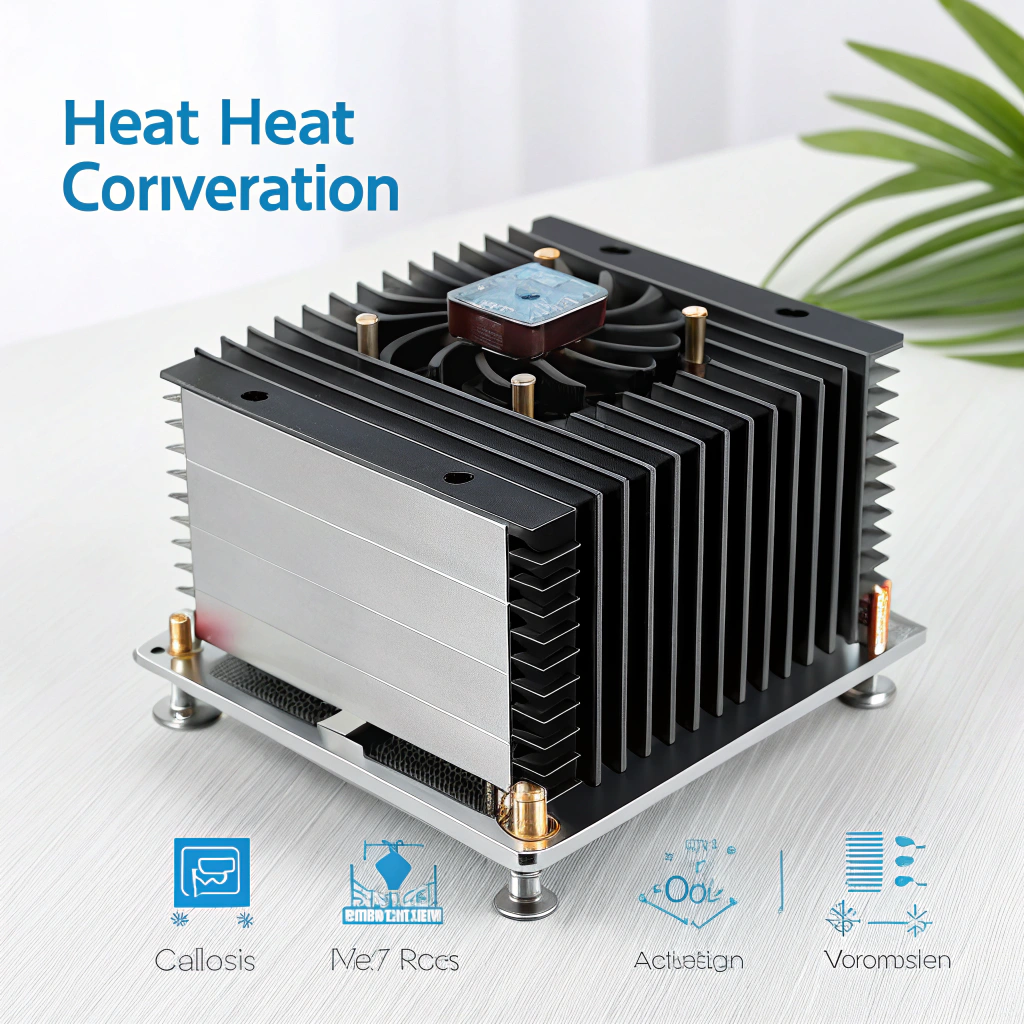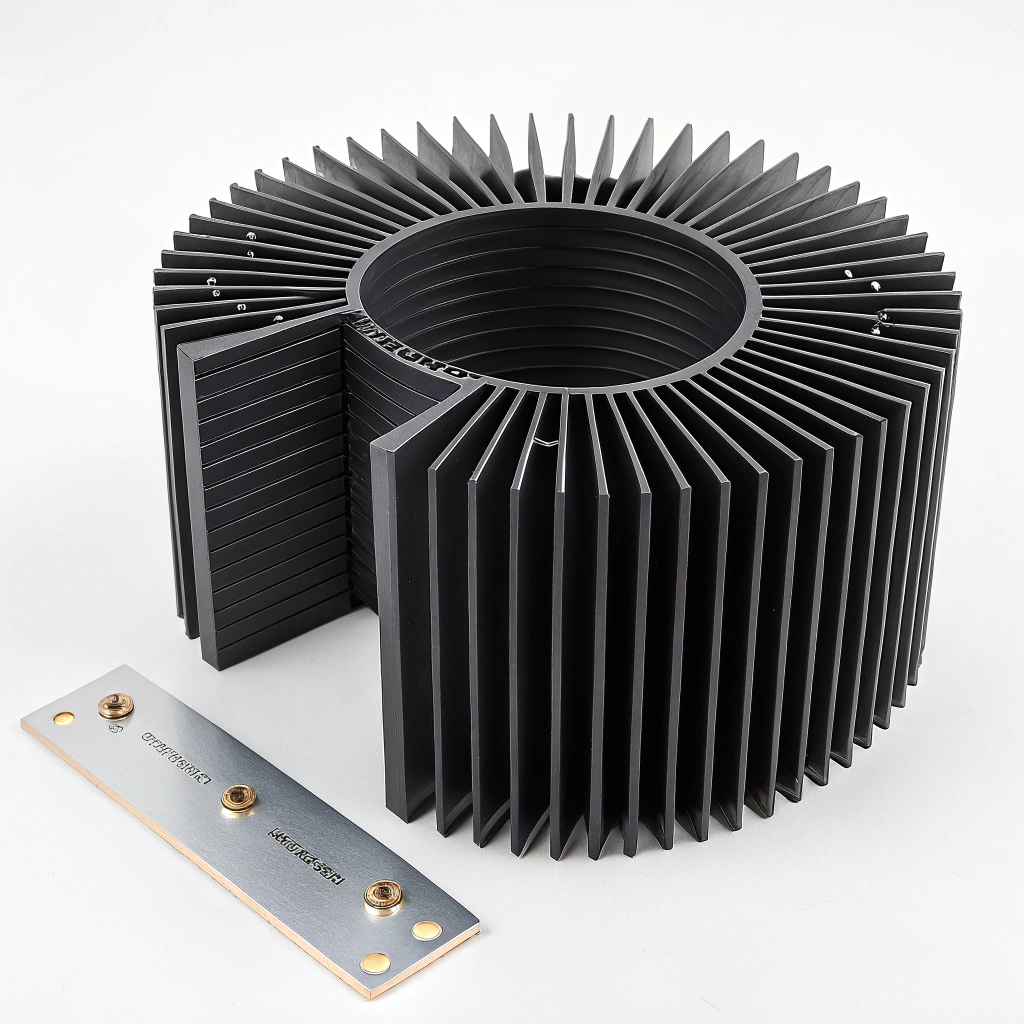Are Suitable for Outdoor Installations?
Outdoor heat sinks face more than just heat. They battle sun, rain, corrosion, and extreme temperature swings.
Yes — our heat sinks are engineered for outdoor use with anodized coatings, corrosion-resistant alloys, and protective design features.
Outdoor thermal management is harsh. Without proper protection, heat sinks can fail early. Let’s explore how to ensure reliable, weatherproof thermal performance.
What protections are needed for outdoor-mounted heat sinks?
Rain, UV rays, and pollution degrade unprotected aluminum. This shortens lifespan and weakens thermal function.
Outdoor-mounted heat sinks need anodizing, sealed surfaces, corrosion-resistant alloys, and drainage design to survive harsh conditions.
Key Protections
-
Material
Use corrosion-resistant aluminum like 6063-T5 or 6061-T6. -
Anodizing
Forms a durable oxide layer that protects against UV, rain, and salt. -
Pore Sealing
After anodizing, we seal the pores to block moisture and chemicals. -
Drainage Design
Fins are angled to shed water. No flat spots to trap debris. -
Coating (optional)
Thin powder coatings or passivation layers add extra protection but must not block heat flow. -
Mounting Tactics
Use stainless fasteners. Avoid metal combinations that cause galvanic corrosion. -
Thermal Interface Protection
Ensure interface pads or grease can handle outdoor cycling. -
Environmental Testing
We test for salt spray, UV, humidity, and thermal shock.
Table: Protection Features for Outdoor Heat Sinks
| Protection Type | Purpose | Notes |
|---|---|---|
| Anodizing | UV and corrosion resistance | Integral to aluminum surface |
| Sealing | Closes anodized pores | Improves resistance to pollutants |
| Powder Coating | Extra weather barrier | Must be thin for thermal flow |
| Drainage Geometry | Avoids water pooling | Sloped fins and beveled edges |
| Fastener Isolation | Prevents galvanic reaction | Use washers or compatible metals |
Anodizing protects heat sinks from UV and corrosion outdoors.True
The anodized oxide layer resists weathering and remains stable under sunlight and rain.
Uncoated aluminum heat sinks are suitable for outdoor use.False
Without protection, aluminum corrodes quickly in outdoor environments.
Do your products resist UV, rain, and corrosion outdoors?
Sunlight fades coatings. Rain brings oxidation. Pollutants speed up wear.
Yes — our outdoor-ready heat sinks resist UV, rain, and corrosion with anodized finishes, sealed pores, and tested alloys.
Resistance by Element
| Element | Risk Without Protection | Our Solution |
|---|---|---|
| UV Rays | Fading, chalking, coating degradation | UV-stable anodizing or hard coats |
| Rain | Surface corrosion, rust, water buildup | Sealed anodized finish, drainage |
| Salt | Pitting, galvanic corrosion | Anti-corrosion alloys + coatings |
| Pollutants | Chemical reaction, surface erosion | Dense anodizing + optional e-coat |
We test our heat sinks using:
- Salt Spray (ASTM B117)
- UV Exposure Chambers
- Humidity Cycling
- Real-time field exposure
Even after 1,000 hours of salt spray testing, our anodized heat sinks show minimal degradation. We also simulate sun, rain, and smog for multi-year durability.
Our heat sinks pass outdoor salt spray and UV resistance testing.True
We conduct accelerated weather testing to validate performance under real-world outdoor exposure.
Outdoor rain and sunlight have no effect on standard aluminum surfaces.False
Without protection, rain and UV degrade surface quality and thermal performance.
Can heat sinks withstand temperature swings in outdoor use?
Outdoor systems face day-night cycles, freeze-thaw, and seasonal extremes.
Yes — our heat sinks use fatigue-resistant alloys and expansion-tolerant mounting to endure thermal cycling from –40°C to +85°C and beyond.
Thermal Cycling Challenges
- Expansion and contraction can cause cracks or loosening.
- Coating fatigue can cause flaking or delamination.
- Interface degradation reduces thermal efficiency over time.
We address this through:
-
Fatigue-Resistant Alloys
6061-T6 and 6063-T5 aluminum maintain strength across temperature swings. -
Flexible Mounting
Slotted holes allow expansion without stress on bolts or enclosures. -
Coating Durability
Anodizing does not crack. Sealing improves resilience. -
Tested Interfaces
TIMs (thermal interface materials) rated for outdoor cycling maintain contact. -
Accelerated Cycle Testing
Simulate 1,000+ thermal cycles. Measure thermal resistance drift.
Table: Outdoor Thermal Cycle Design
| Feature | Purpose | Result |
|---|---|---|
| Alloy Selection | Prevents fatigue, maintains shape | No cracking or deformation |
| Slot Mounts | Absorb expansion and contraction | Prevents mechanical stress |
| Interface Retention | Maintains thermal transfer | No delamination of TIM |
| Coating Stability | Withstands repeated expansion | No peeling or flaking |
Our heat sinks are tested to survive freeze-thaw and heat cycles outdoors.True
We simulate rapid heating/cooling to ensure mechanical and thermal stability.
Coatings on heat sinks crack easily when exposed to thermal swings.False
Anodizing is part of the metal structure and resists thermal expansion damage.
Which models are best for solar inverter enclosures?
Solar inverters need to run outdoors year-round, often in harsh environments.
We recommend anodized aluminum heat sinks with large fins, weatherproof coatings, and corrosion-resistant fasteners for inverter enclosures.
Features to Look For
- High surface area for convection
- Durable anodized or sealed finish
- Mounting flexibility with slotted holes
- Optional sensor ports or hybrid cooling
- Drainage-ready geometry
Recommended Models
| Model | Size (mm) | Notes | Application |
|---|---|---|---|
| ATS-NVA-3275-C4-R0 | 327.5×76.2×50 | Mid-size, good fin pitch | Natural convection zones |
| Wakefield 127783 H-Style | 200×100×75 | Deep fins, high airflow area | Windy environments |
| Tapped Large Heatsink | 290×120×40 | Ready for wall mount, threaded | Inverter box panels |
| Fischer LA 7/150 | 150×100×70 | Fan-compatible, rugged | Hybrid cooling setups |
| Heat Sink 200×60×30 (generic) | 200×60×30 | Low cost, needs anodizing | Budget installations |
These models can be adapted to your enclosure with:
- Custom hole patterns
- Powder coat or e-coat options
- Surface sandblasting for higher emissivity
- TIM recommendations for inverter contact
We also design fully custom extruded profiles if your inverter system has unique mounting or airflow constraints.
We offer heat sinks specifically for solar inverters and outdoor enclosures.True
Our designs are used in solar boxes and pass outdoor durability standards.
Indoor-only heat sinks are fine for solar inverter cooling.False
Outdoor use requires protection against sun, salt, rain, and thermal swings.
Conclusion
Not all heat sinks belong outdoors. Ours do. With anodized finishes, thermal stability, and corrosion-tested materials, our outdoor-ready models keep systems cool — rain or shine.
